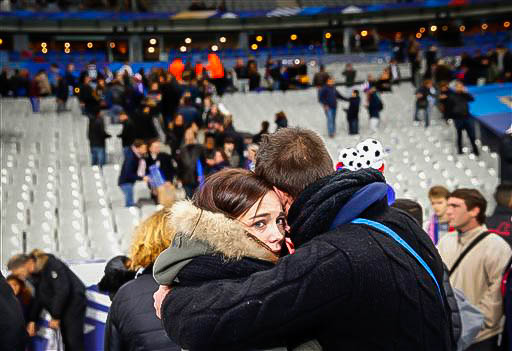
By Susanna McNatt
STRASBOURG — In light of the recent terrorist attacks affecting European countries, my semester abroad in Strasbourg has been interesting to say the least. I began my semester with a two-week traveling seminar and visited Germany, Poland and Austria, focusing on shifted borders and how each country’s history has affected its identity. I am taking classes focusing on the economic, political, social and cultural aspects of the European Union (EU), as well as its relationship with neighboring regions. The Alsatian city of Strasbourg near Germany’s border is not well known, but should not be overlooked. It is the official seat for several European institutions, including the Council of Europe, European Court of Human Rights and Parliament — all ten-minute walking distances from my classes.
While Europe is becoming the largest source of development assistance and emergency humanitarian aid, EU member states struggle with problems like high unemployment rates, the eurozone crisis, migration and terrorist attacks. The last few weeks saw a tragic loss of life due to bombings and raids in Paris, Belgium, Beirut, Mali and Nigeria. Eight of my classmates were in the Stade de France watching the France-Germany game when the bombing occurred. Fortunately, they made a safe return to Strasbourg, noting how surprisingly organized security was in filing people out of the stadium. Many people were unaware of the situation until they received online notifications and concerns from family members, implying that the commotion they were experiencing was more than just fireworks.
The entire experience was disorienting for my program. We discussed the issue in my classes and talked with representatives from the nearby American Consulate about security measures. I have also had multiple opportunities to sit in on debates at the Council of Europe and hearings at the Court of Human Rights. Most recently, I attended a session at the Council of Europe for the annual World Forum for Democracy.
I listened to a panel of American representatives accompanied by the Parliamentary Assembly of the Council of Europe president Anne Brasseur. The speaker and technician, Jacob Appelbaum, of Berlin, is unsupportive of the NSA regarding privacy law and spoke about how living in the U.S made him feel unsafe.
William Binney, a former NSA member, embraced the opportunity to charge the NSA with illegal actions. He argued the negative impact of mass surveillance in the media and the right to personal property. It was fascinating to hear American representatives speak out against U.S. democracy and security, surrounded by numerous EU member state leaders.
The Council of Europe works to promote democracy, rule of law and human rights — all interests the terrorists are against and trying to subvert. This makes living in Strasbourg a little unnerving as it is home base for major European institutions. Despite the fear the terrorists are trying to instill in the hearts of Europeans, city elections will still take place.
President of the Parliamentary Assembly Council of Europe, Anne Brasseur, said at the forum that “fear is the worst advisor we could have.” I one could argue that submission is not the same as keeping the peace and that pacifism is stronger when it is a choice. We must continue to be cautious of our surroundings, especially with increased threats.
My experience living in Strasbourg has been especially rewarding and eye-opening. I am able to study current events through a European perspective and hear the American perspective in a European institution. Life is beginning to revert back to the way it was before the Paris attacks and Strasbourg’s famous Christmas markets have officially opened. Although the markets are downsized this year for security purposes, the joy and festivities continue to represent European spirit and unity as advocated by the various EU institutions.








































































































































































































